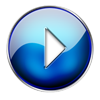Learning Theories
5
Overview
 Video Description (4:59)
Video Description (4:59)
Description
Experiential Learning theory is based on the idea that learning is a cyclical process involving experience, perception, cognition, and behavior in a holistic manner where all four stages of the process are necessary for learning to occur. These stages include concrete experience such as a lab or module, observations and reactions, forming of abstract concepts, and applying or testing this knowledge in new contexts. The learning theory states that learners learn best from their experiences and from mistakes that are made.
Guidelines for Use
Prepare the learner
Make sure the learner is prepared before the learning event so they are aware of the expectations you have and the needs they should be focusing on. The instructor should pose problems, set any necessary boundaries, explain the purpose and objectives of the learning event and facilitate the learning process.
Sequential Ordering of Cycle Stages
Although learners can enter the cycle of learning at any stage, it is imperative that those stages follow the sequential order in the cycle. The first stage is concrete experience, the second stage is reflection and observation, followed by abstract conceptualization and then testing knowledge in new situations. Although the cycle must be in this order, the starting point is not prescriptive.
Be Less Teacher-Centric
Learning events or lessons should not be teacher-centric. Instead, they should allow opportunities for students to show agency and active engagement by asking questions, investigating and solving problems, and learning from both success and mistakes with their natural consequences. Instructors should be facilitators of learning and sources of support.
Holistic Learning & Assessment
All class materials, readings, assessments, and activities in the classroom or online should be directly linked to the experience so that all learning events are connected. Ideally, there should be a major project that guides the learning throughout the entire course or process, which helps keep students focused on forward momentum, progress, and the ultimate goals of the learning. The learning cycle itself can be seen as a rubric for any lesson.
Dynamic Matching Model of Roles
The experiential learning cycle stages should be aligned with the learner focus, knowledge focus, subject focus, and action focus, which in turn connect to certain roles of educators in the learning process, where the instructor may be the facilitator, the subject expert, the standards setter & evaluator, and the coach.
Good Examples of Use
Example 1 – Brock University’s Experiential Education Program
Brock University has experiential learning opportunities integrated into many of their programs, including the more traditional practicums and internships, but also labs, simulations, design projects, and field experiences.
Example 2 – Prodigy Math Learning Platform
This engaging game based online tool allows students to choose their own avatar and play through a series of complex math challenges and problems. Teachers can link this to course objectives and assignments and design a holistic learning experience.
Example 3 – Experiential Learning at University of Calgary
This article provides five concrete examples that The University of Calgary conducts online and in the classroom or community. This includes community program experiences like tutoring in libraries followed by online reflection exercises through D2L, learning labs on campus, placement opportunities, and intercultural immersion experiences over reading week.
Helpful Resources
Resource 1 – Association for Experiential Education
This website gives a broad definition of experiential learning and provides access to professional development, research, publications, and accreditation programs that are all based on the experiential learning theory.
Resource 2 – Learn Through Experience
This website provides contacts of organizations and projects that offer real-world experiential learning opportunities and categorizes those opportunities based on the type of experience, such as wilderness opportunities, and the demographic targeted, such as K-12 students or higher education opportunities.
Resource 3 – 8 Things To Know About the Experiential Learning Cycle
This informative video details the entire experiential learning theory and cycle and explains real life examples and applications of the theory for educators.
Resource 4 – Ontario’s Ministry of Education
The Ministry of Education website details the definitions, learning objectives and outcomes, community roles, and assessment and evaluations involved in experiential learning.
Resource 5 – Experiential Learning Online: A “how to” handbook
This is an incredibly helpful handbook on eLearning Industry’s website that helps instructors apply experiential learning to online learning and module and course design.
Resource 6 – Experiential Learning Toolkit
This resource was created by Niagara College, Brock University, and Georgian College. It’s a resource made for instructors to provide guidance and tools to integrate experiential learning into the classroom.
Research
CommLab India. (2011, July 7). Experiential Learning- An Effective Learning Method. [YouTube video]. Retrieved from https://www.youtube.com/watch?v=L8mtcFh2x04
David, L. (2007, February 13). Experiential Learning (Kolb). [Web page]. Learning Theories. Retrieved from: https://www.learning-theories.com/experiential-learning-kolb.html
Kolb, A.Y; & Kolb, D. A. (2017). Experiential Learning Theory as a Guide for Experiential Educators in Higher Education. Journal for Engaged Educators, 1(1), 7-44. Retrieved from https://learningfromexperience.com/downloads/research-library/experiential-learning-theory-guide-for-higher-education-educators.pdf
Schwartz, Michelle. (n.d.). Best Practices in Experiential Learning. [PDF file] Retrieved from https://www.mcgill.ca/eln/files/eln/doc_ryerson_bestpracticesryerson.pdf
Author
| Submitted by: | Blair Trewatha |
| Email: | Blair.trewartha1@ontariotechu.net |
| Bio: | Blair Trewartha is an educator and instructional designer currently completing his Masters of Education at Ontario Tech University. He holds a B.A. in English/History, a Bachelors of Education degree, and over ten years experience teaching in post-secondary institutions across Ontario. |
